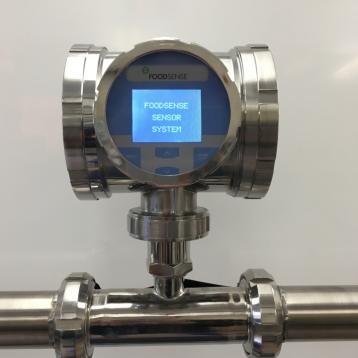Data Driven Innovation
The ERPE is committed to the vision that Edinburgh should be the data capital of Europe. With the breadth of knowledge across the ERPE, this target is achievable. The next-generation technology developed within the partnership has already proved invaluable in improving the lives of many worldwide. These game-changing innovations have demonstrated not only how beneficial our research is for society, the economy and the environment but has cemented the relationships between academia and industry.
Data-Driven Innovation was agreed as a critical part of the Edinburgh and South East Scotland City Region Deal in 2017 to attract investment, fuelling entrepreneurship and delivering inclusive growth. The ERPE has been at the forefront of research from this £661m investment, producing groundbreaking technology.
Over 15 years, DDI will bring in £500M to both institutions, notably to support ERPE-related research and innovation. ERPE is investing £31.5M in building the National Robotarium (to open 2021), building on the Edinburgh Centre for Robotics (ECR) that leads the £36M ORCA Hub (funded through the Industry Strategic Challenge Fund (ISCF) programme on "Robotics and AI for Extreme Environments"). We also provide free and open online access to as much as possible of our raw data to ensure that the benefits are widespread. We disseminate our data from our experiments involving extreme/hazardous materials and processes using dedicated websites such as Edinburgh Datashare and the UKERC Energy Data Centre.
Below is a snapshot of our many innovative ideas that have grown from publications to applications and collaborations.
Technologies to Reduce Waste
Manufacturing companies are increasingly looking to reduce waste and become environmentally friendly businesses while improving process efficiencies. Professor Marc Desmulliez has created state-of-the-art sensor systems that help companies do just that. This revolutionary manufacturing research is opening new possibilities for the food and drink industries.
Marketed through the spin-out company MicroSense Technologies Ltd, the non-contact sensors enable companies to precisely monitor production lines and product quality, resulting in waste reduction, improved efficiencies and cash savings in raw material and plant loss.
Data-Driven Technology to Revolutionise Later Life Care
This multi-disciplinary project has played a leading role in a significant new partnership with Legal & General, aiming to improve understanding of care in later life and revolutionise its delivery.
The Centre will enable data-driven, personalised and affordable care that delivers independence, dignity and high quality of life for people living in their own homes or supported care environments. Research in digitising elderly care allows people in later life to remain independent in their own home, which is a critical objective for supporting the UK's ageing population and cutting mounting pressure on the UK's beleaguered social care system.
Advanced Care Research Centre (AC) will allow Edinburgh's open-sourced, data-based and cross-disciplinary approach to delivering critical positive changes to ageing and care. We find this a compelling and practical vision.
Empowering Communities to Control Their Own Energy Supply with Blockchain
Our academic staff have been studying the UK's energy future and are increasingly interested in community energy models' potential. The Smart Systems research group has rapidly established international recognition as being at the forefront of data analysis and embedded intelligence within critical infrastructure and energy systems.
Blockchain technology is often associated with energy-intensive cryptocurrency mining. However, our study highlights blockchains' potential in future energy systems by enabling emerging developments such as peer-to-peer energy trading among prosumers, Internet-of-Things and e-mobility applications. One house can buy excess renewable generation from a neighbour's solar panels or a community wind turbine.
Our research was cited in a research-based presentation as evidence to the US Congress. A new study by the Congressional Research Service (CRS), which provides policy and legal analysis to committees and Members of both the US House and Senate, references work from the University's Smart Systems Group (SSG). The report titled, Bitcoin, Blockchain and the Energy Sector, examines the popularity of cryptocurrencies, such as Bitcoin and the increasing energy demands of supporting these digital currencies.

Data Driven Innovation

Food Sense Sensor System
Care in Later Life Cycle